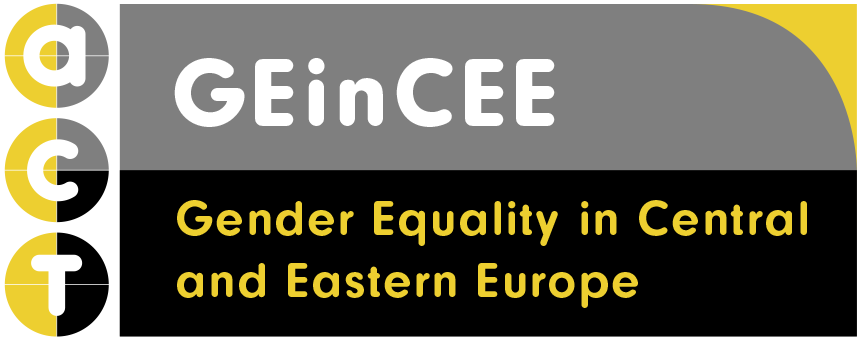
In a series of posts we present the current developments in gender equality in the GEinCEE CoP’s member organisatons. Read a post written by Julija Mazuoliene and Aurelija Novelskeite.

Why is the participation of the Lithuanian Social Research Centre in activities of Community of Practice on Gender Equality in Central and Eastern Europe so important for us?
The Lithuanian Social Research Center (LSRC) is a public research organization consisting of 5 research institutes which play significant role in carrying out fundamental and applied social research in such fields as sociology, labor market, ethnic studies, social welfare, human geography and demography. Gender – both as a variable and separate research topic – has been and still is highlighted in almost all empirical studies accomplished by LSRC researchers. Moreover, LSRC’s researchers cooperate as experts with European Institute for Gender Equality (EIGE), Equal Opportunities Ombudsperson’s Office, Ministry of Education, Science, and Sport, other national and international science and / or (gender) equality policy making bodies. However, on institutional level, gender equality as one of organizational policy objectives, is rather new challenge which was evoked by amendments in national legislation in the middle of 2017. Thus, since the beginning of 2018, there is a list of measures for implementation of equal opportunities policy and for implementing the principles of enforcement proclaimed at LSRC. The measures are focused on equal opportunities in hiring procedures, the same working conditions for all employees, equal pay, prohibition of discrimination, work-life balance, etc. This document creates organizational context and provides background for further actions striving for more advanced institutional developments ensuring gender equality in the organization and research.
It is important to fix the date: the 20th November 2019. It was the day when a meeting of the GEinCEE CoP has been organized at the LSRC. This event was a stepping-stone for us: after the workshop, an initiative gender equality group of expert researchers and those interested in gender equality issues came together and started planning and implementing such activities as application of GEAR tool for assessment of gender equality status quo in LSRC, participation in preparation of application for H2020 Swaf program, organization of international conference focused on discussion of implementation of GEPs in RPOs and RFOs in CEE countries, etc. The GEinCEE CoP not only triggered those activities at LRSC, but also took and still is taking active part in most of them.
The CoP facilitators successfully develop and uphold stimulating and supportive space for communication and exchange of ideas, knowledge and experience related to implementation of gender equality policies and measures in participating organizations. This space is especially valuable because of its unique focus on CEE region, which rather often has been neglected in wider European discussion on gender equality in research and innovations. Thus, participation in the CoP’s activities enriches us with knowledge about gender equality achievements in other RPOs in the region, expands our understanding of undergoing process, and reinforces our general sensitivity to the topic. Simultaneously, belonging to the CoP as a group of researchers and academic managers, contributes to strengthening the feeling that we are not alone in striving for gender equality.
In general, participation in the CoP’s activities encourages us to look critically at and react towards all institutional procedures and measures where (potentially) inequality could be practiced. Thus, joining international CoP inspires us to act for institutional change – to clarify and specify institutional gender equality policy, elaborate reasonable and, believable, innovative GEP and, while implementing it, to strive for elimination of gender bias and all possible inequality supporting practices from institutional procedures by making them transparent and gender sensitive.

